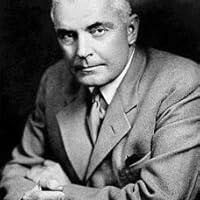
John B. Watson
Sobre el Autor
John B. Watson was a pioneering American psychologist who is often regarded as the father of behaviorism. He believed that psychology should focus on observable behaviors rather than internal mental states. His work emphasized the importance of environmental factors in shaping behavior and laid the foundation for modern psychology as a scientific discipline. Watson's most famous experiment involved conditioning a young boy known as 'Little Albert' to fear white rats, demonstrating that emotional responses could be conditioned through environmental stimuli.
Watson's influence extended beyond the realm of psychology into fields such as advertising and education, where he applied behaviorist principles to understand consumer behavior and learning processes. He authored several influential books, including "Psychology from the Standpoint of a Behaviorist," which further elaborated on his theories and practices. His legacy continues to impact psychology and related fields, cementing his status as a key figure in the evolution of psychological thought.